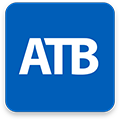As a small business owner, understanding the relationship between financial literacy and financial wellness can make the difference between thriving and just surviving. Research reveals that financial success isn't solely determined by income—a finding that has significant implications for personal and business finances.
Financial literacy encompasses understanding money management, including budgeting, saving, debt management, and investments. It's knowledge that drives informed financial decisions.
Financial wellness represents feeling secure and confident about your financial situation, characterized by stability, resilience, and reduced stress around money matters.
The relationship between these concepts creates a powerful cycle. Improved financial literacy leads to better decision-making, which enhances financial health and reduces stress. This increased financial security often motivates further financial education, creating an upward trend of improvement.
Running a business doesn’t necessarily make someone an expert in financial matters. Many small business owners excel at their core services but face the same learning curve as everyone else when it comes to financial literacy.
Insights from research
A comprehensive 11-year study analyzing employed Canadians revealed that financial well-being or wellness exists on a spectrum, with an interesting twist: income level isn't the determining factor. Some individuals with modest revenues maintain excellent financial wellness, while some high-revenue individuals face constant financial stress. The key differentiators were saving habits and financial resilience, which matter more than raw income numbers. This finding offers hope: regardless of your current revenue, you can improve your financial wellness through better personal financial habits and education.
How it applies to business owners
The above-noted Canadian study applied to employees, but the concepts apply equally to entrepreneurs when contextualized to the small business environment.
Financial stress for business owners often comes from:
- Inconsistent cash flow (irregular client payments, seasonal sales dips).
- Low savings (both personal and business emergency funds).
- Poor financial habits (reactive decision-making instead of proactive planning).
Your business's financial health isn't just about the numbers in your bank account—it's about the knowledge, habits, and systems you put in place to manage those numbers effectively. This includes maintaining clear boundaries between business and personal finances. Some business owners treat their business like an ATM, withdrawing cash whenever they need it to cover personal expenses. Others treat themselves when things are going well, a bad habit that leads to "lifestyle creep."
While deviating from a regular salary may be convenient, it can disrupt cash flow, undermine financial stability, and make planning for growth or emergencies harder. Excessive withdrawals can leave the business short on funds for essential expenses like payroll, inventory, or debt payments, creating financial stress and instability. Owners jeopardize their company's health and long-term financial wellness by blurring the lines between business and personal finances. As an added benefit, your accountant will thank you for keeping them separate—you'll avoid tax problems and have an easier time balancing your business books.
For individuals and business owners, financial resilience means being able to weather unexpected setbacks without derailing personal finances. This comes from:
- Maintaining consistent saving habits, even in small amounts
- Building emergency funds for business and personal use
- Reducing reliance on personal debt
- Planning for irregular expenses and fluctuations
The role of financial literacy here is crucial. Understanding cash flow management, profit margins, and basic accounting principles enables you to build resilience over time, making informed choices regardless of your revenue bracket.
Practical steps for improvement
Financial literacy gives you the knowledge to manage profits, control costs, and make proactive decisions, reducing financial stress and improving stability.
On the business side:
Start small—track income and expenses, build an emergency fund separate from operating capital, and create a simple monthly cash flow plan. Develop clear goals and metrics for your business. Use cash flow mapping to anticipate dips, adjust expenses, and save during peak months to cover lean periods.
On the personal side:
Build a personal business emergency fund. Track personal spending habits and learn key financial and money management concepts. Implement personal systems to monitor and improve cash flow. Develop clear financial goals and metrics that involve a specific salary and don’t involve sudden dips into your profits.
The bottom line
The research is clear: financial wellness isn't determined by revenue alone but by financial habits, resilience, and literacy. Whether you are an employee or entrepreneur, this means building strong financial foundations through education and systematic planning rather than solely pursuing revenue growth.
